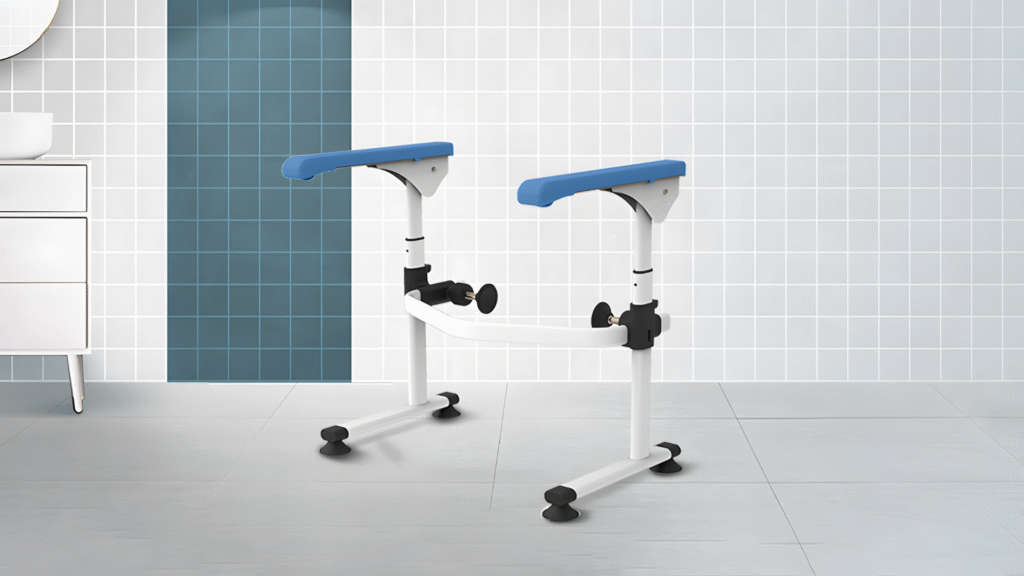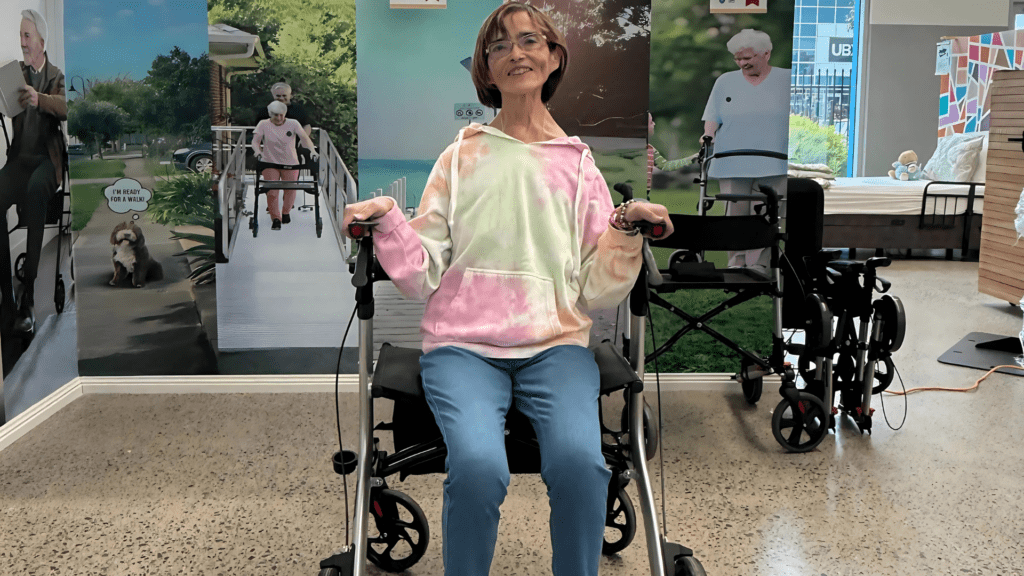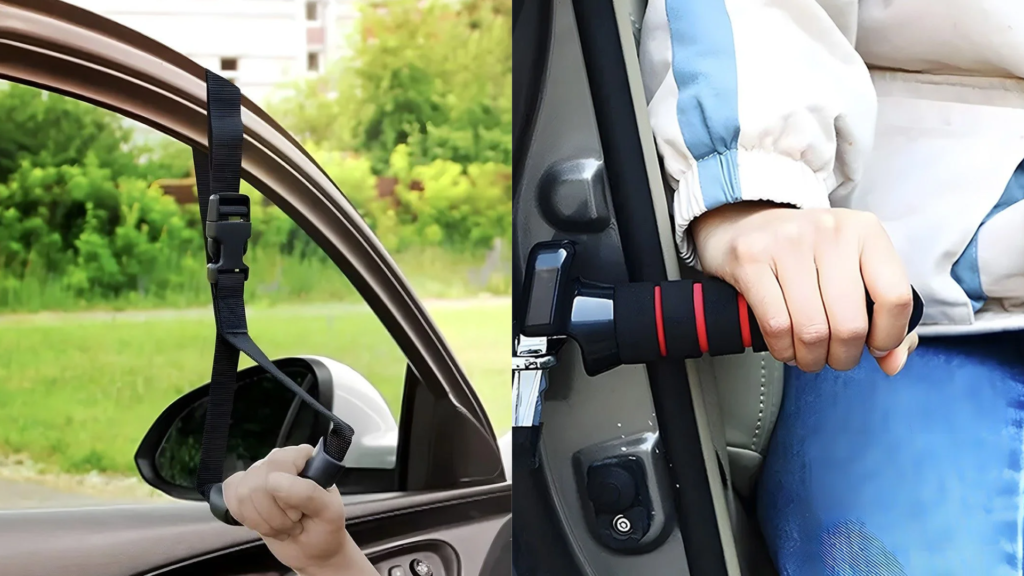For individuals recovering from surgery or experiencing reduced mobility, a shower chair is a crucial bathroom safety aid. Whether you’re managing after hip or knee replacement surgery, or supporting a loved one with balance issues, the right shower chair for elderly or disabled people ensures safer bathing, greater independence, and improved comfort.
In this guide, we’ll explore how to choose a disability shower chair or shower chair with arms, tailored for short-term recovery or long-term mobility support. We also cover NDIS funding, OT advice, and which features make a meaningful difference during post-operative care.
Understanding Mobility Challenges After Surgery
After surgeries like:
- Hip or knee replacements
- Spinal procedures
- Fracture repairs
- Or any operation affecting balance and mobility
…patients often experience:
- Weakness in legs or arms
- Difficulty standing in wet, slippery spaces
- Risk of falling or overexertion
- Trouble lifting one leg to step into a shower
These challenges can turn a daily routine into a safety risk. A well-chosen shower chair for recovery offers seated support and helps reduce strain, making hygiene tasks more manageable during healing.
Key Features to Look For
Not all shower chairs are alike. To ensure safe and effective use during recovery, consider the following essential features:
1. Armrests
- Provide lateral support during sitting and standing
- Crucial for post-op patients who lack leg or core strength
- Help reduce fear of slipping
2. Backrest
- Offers spine and shoulder support
- Important for users who tire easily
- Adds comfort for longer showers
3. Non-Slip Rubber Feet
- Prevent sliding on wet surfaces
- Essential for tiled or slippery bathroom floors
4. Height Adjustability
- Tailor seat height to user’s leg length and post-op restrictions
- Ensures safe transfers to and from the chair
5. Waterproof Materials
- Rust-resistant aluminium or plastic construction
- Quick-drying and easy to clean
Types of Shower Chairs for Different Recovery Needs
Here are some common types of shower chairs for disabled people or seniors and when to use them:
Standard Shower Chair with Arms and Backrest
- Best for general support and balance
- Easy to use in standard showers
- Suitable for post-hip, knee, or spinal surgery
- View product: Shower Chairs Collection
360-Degree Rotation Shower Chair
- Swivel design reduces strain during turning or reaching
- Ideal for patients with joint stiffness or restricted upper body movement
- Supports safer carer-assisted transfers
- View product: 360° Rotation Shower Chair
Folding Shower Stool (For Short-Term Recovery)
- Lightweight and space-saving
- Good for occasional use or travel
- May lack arms/back support—best for milder cases
Extra-Wide or Bariatric Shower Chair
- For users with broader body frames or heavier weight
- Includes reinforced frame and wider seat
- Suitable for longer recovery periods or higher support needs
Adjustability and Comfort Considerations
Comfort plays a significant role in compliance and healing. A poorly fitting chair can lead to poor posture, muscle fatigue, or reduced use.
What to check
- Seat Height: Feet should rest flat on the floor for stability
- Seat Width: Ensure enough room to sit without hip strain
- Arm Height: Should support natural arm placement without shoulder tension
- Cushioning: Some chairs include padded seats or backrests for enhanced comfort during longer showers
For advice on fitting, speak with an OT or request a trial through our team. Contact us to get started.
NDIS and OT Recommendations
If you are an NDIS participant, you may be eligible for fully funded shower chairs and other bathroom safety equipment under the Assistive Technology category.
To Access Funding
- An Occupational Therapist (OT) will assess your needs
- You’ll receive a written recommendation and quote
- The chair can be purchased using Core or Capital Supports
- Some models may qualify for a trial before final purchase
If you don’t have an OT, we can help connect you with one or guide you through the process. Submit an enquiry to learn more.
Conclusion
The right shower chair is not just a convenience—it’s a crucial part of safe recovery and ongoing independence. Whether you’re caring for someone post-surgery or preparing your own home for rehabilitation, look for features like arms, back support, adjustability, and non-slip feet.
- Shop shower chairs for elderly and post-op users
- Explore the 360° rotation chair
- Contact us for OT-approved options and NDIS-funded solutions
Let recovery be safe, supported, and as comfortable as possible.
Frequently Asked Questions (FAQs)
- Do I need a shower chair after hip or knee surgery?
Yes. Most post-op care plans recommend using a shower chair to reduce joint strain and avoid falls while bathing. - Are shower chairs covered by NDIS?
Yes. If prescribed as necessary Assistive Technology by an OT, NDIS may fund your shower chair purchase. - What is the best chair for someone with balance issues?
Look for a shower chair with arms, back support, and a wide, stable base. Swivel or rotation models may also help. - Can I adjust the height of a shower chair?
Yes. Most quality models are height adjustable to suit different leg lengths and toilet/shower setups. - What is the safest material for a shower chair?
Aluminium or medical-grade plastic are safe, rust-resistant, and lightweight. Non-slip feet are also essential for safety.



